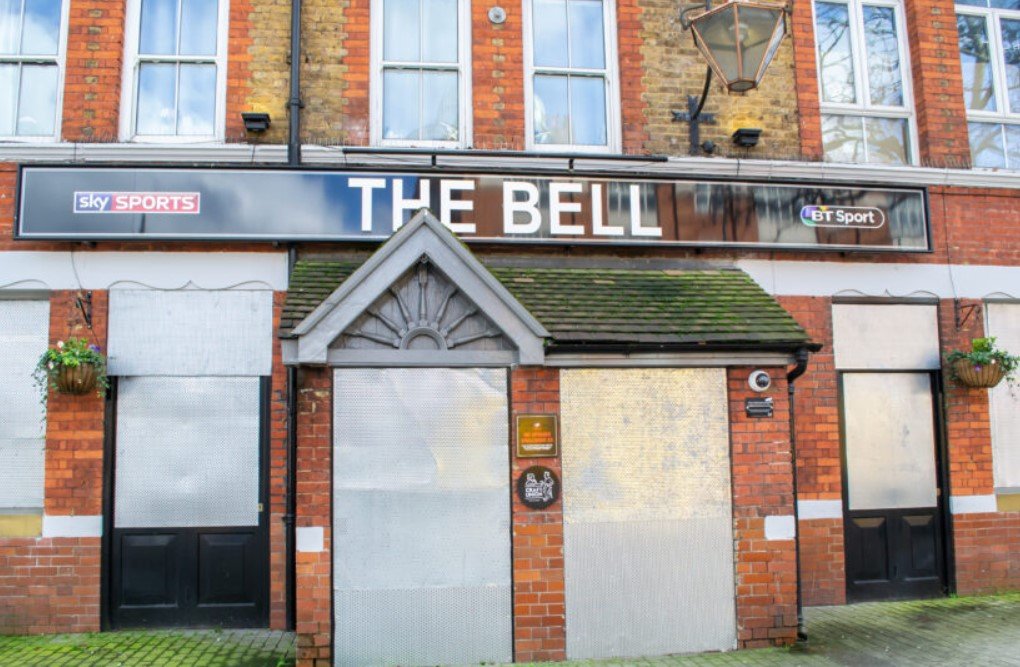London has seen the highest number of pub closures in the UK in the first half of 2023, according to a new study. The capital lost 46 watering holes up to the end of June, as rising business rates and other costs put pressure on the industry.
The study, by real estate analysts Altus Group, also found that across the UK as a whole, 383 pubs closed in the same period, almost matching the total for the whole of 2022 when 386 were lost. The government said it was helping venues by providing 50% business rates relief and freezing alcohol duty rates.
How business rates affect pubs
Business rates are a tax based on the rental value of a property. They are paid by businesses such as pubs, shops, offices and factories. The rates are set by the government and collected by local authorities.
Pubs, as with other eligible hospitality, leisure and retail businesses, currently get a 75% discount off their business rates bills for the 2023/2024 tax year up to a cap of £110,00 per business. This is set to end on 31 March 2024, while business rates are also set to rise next April in line with September’s headline rate of inflation, which could also add more than 6% to bills next year.
Alex Probyn, president of property tax at Altus Group, warned more venues would disappear unless the chancellor extended business rates relief beyond spring 2024.
“With energy costs up 80% year-on-year in a low growth, high inflation and high interest rates environment, the last thing pubs need is an average business rates hike of £12,385 next year,” Mr Probyn said.

How pubs contribute to London’s economy and culture
Pubs are not only places to drink and socialise, but also key drivers of local economies and culture. According to the most recent London Assembly pub audit, the number of venues has declined overall over the past 20 years in most London boroughs. However, employment in the sector has increased as the average pub has become larger.
The audit also found that while the decline in pub numbers reflected an overall UK trend, the number of employees increased by more in London (12%) than the average across the country (3%). This suggests that pubs in London are more resilient and productive than elsewhere.
Pubs also play an important role in supporting London’s tourism, nightlife, music and creative industries. They provide venues for live performances, community events and cultural activities. They also contribute to London’s identity and diversity, as well as its social cohesion and well-being.
What can be done to save London’s pubs
The government spokesperson said: “We recognise that pubs are key drivers of local economies, but no national government can control the global factors pushing up the price of energy and other business costs.”
They added: “We are supporting hospitality businesses and those in the supply chain across the UK with 50% business rates relief, freezing alcohol duty rates on beer, cider, wine and spirits and reducing employer national insurance. This is in addition to the billions in grants and loans offered throughout the pandemic.”
However, some pub owners and campaigners have called for more action from the government and the industry to ensure the survival and growth of London’s pubs. Some of their suggestions include:
- Creating ethical standards and best practices for pub operators and landlords
- Ensuring transparency and accountability in pub ownership and management
- Fostering public awareness and education about the value and benefits of pubs
- Providing more financial support and incentives for pub owners and staff
- Promoting innovation and diversification in pub products and services
- Encouraging collaboration and partnership among pub stakeholders and communities
Commenting on pubs struggling with business rates, a spokesperson for the mayor of London said Sadiq Khan had called for “fundamental reform” of the business rates system, including “full devolution of business rates tax policy”.
“It’s vital that ministers step forward and recognise the value of our local pubs by offering greater support to operators and doing more to tackle the cost-of-living crisis,” they added.
